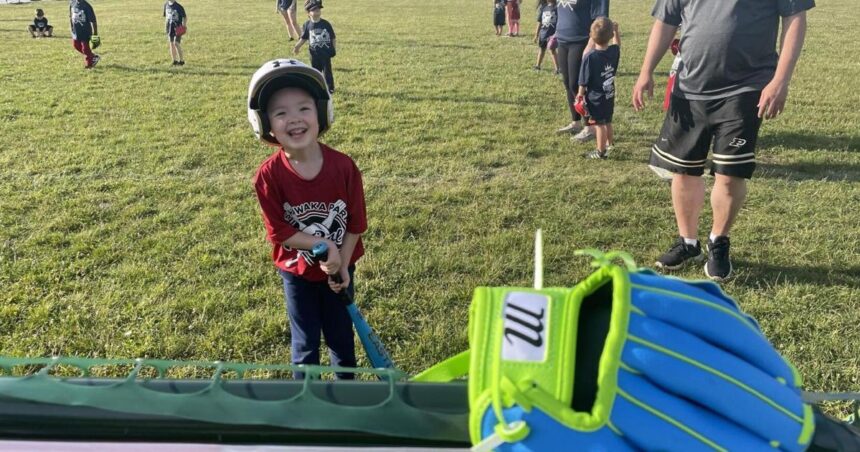“Hey batta, batta, batta — swing!” the 5-year-old boy yelled from his shortstop position.
Jerry Davich
As with every skill, rule and nuance to the game of baseball, the boy learned this age-old chant from his father and other parents.
I watched this tee-ball game from the third-base line while keeping an eye on the parents as much as the young children, including my 5-year-old grandson.
As the cute little tykes ran around the field like drunken monkeys, their parents repeatedly directed them where to line up, how to field a grounder and how to hit a ball. It’s one of the most difficult skills in the sports world.
“Keep your eye on the ball!” one father yelled to his son, who struggled to make contact.
The father obviously cared much more than his son. The boy wanted to play with his new friends more than he wanted to “play ball.” His lack of focus clearly bothered his father, who kept giving instructions.
People are also reading…
Fortunately, this tee-ball game involved kids ages 4 and 5, so expectations were low for learning skills on the field and for winning the game. But the stakes get higher for older kids in any sport who must perform on the field while simultaneously deal with overbearing parents in the stands.

A parent video records her son’s tee-ball baseball game at a park in Mishawaka.
Some loudmouth adults should get unsportsmanlike-conduct penalties for their unruly behavior or obnoxious language or aggressiveness to kids who must endure intimidating rants in front of their friends. This is the ugly side of youth sporting events, and it’s getting worse as many parents insist on, ahem, “managing” every aspect of their children’s lives.
“Some of these parents are out of control,” said Teonna Wilber, a licensed therapist who owns Survive & Thrive Counseling in Indiana. “It’s ramping up, and their poor children are being publicly embarrassed because of their parents.”
Wilber, who has two children, 14 and 11, is struggling to understand it from a personal and professional point of view. She was raised in an era when parents were more hands-off every situation of their child’s life.
“Kids need to learn teamwork, sportsmanship and how to play with other kids without resorting to hostility and conflict,” she said. “Their parents don’t seem to understand the meaning behind youth sports. These are recreational leagues for children, not the Olympics.”
Wilber’s 14-year-old daughter referees soccer games to earn money, but other teenage referees say the cash isn’t worth the abuse from parents on the sidelines.





